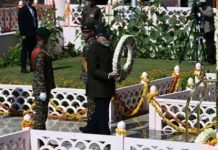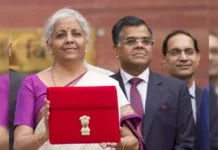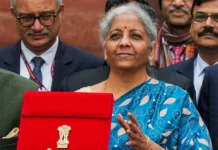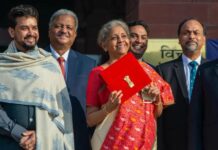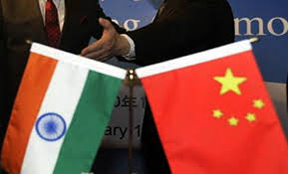 NEW DELHI: Reflecting growing congruence in bilateral ties, China today pitched for promoting a new security concept featuring mutual trust and cooperation to take the Sino-India relationship further.
NEW DELHI: Reflecting growing congruence in bilateral ties, China today pitched for promoting a new security concept featuring mutual trust and cooperation to take the Sino-India relationship further.
Chinese Ambassador Wei Wei also said that China and India should work closely to push for a mutually beneficial global economic regime and oppose protectionism of any form.
“We should promote new security concept featuring mutual trust, mutual benefit, equality and cooperation,” he said while delivering a lecture at the Institute of Defense and Strategic Affairs.
The comments by Wei Wei came three days after Chinese President Xi Jinping’s Special Envoy and Foreign Minister Wang Yi held extensive talks with External Affairs Minister Sushma Swaraj during which both sides agreed to further boost ties in diverse fields.
With improving relations, the two countries are exploring the possibility of having joint exercises between the air forces and the navy, besides the armies which have held three exercises so far and agreed to hold the fourth one in India this year.
Seeking better economic and trade ties, Wei said both the countries should actively seek “common development” while following the principle of mutual benefit, cooperation and win-win situation.
He said both countries should make efforts to achieve “peaceful co-existence, equal participation and competition on an equal footing”.
“We should respect each other’s rights to make independent economic decisions, advocate a mutually beneficial global trade and economic regime and oppose protectionism in any forms,” he said.
China is India’s biggest trading partner with two-way trade reaching close to USD 65 billion in 2013, according to official figures. However, the trade deficit in favor of China continued to mount to around USD 40 billion which is a matter of concern for India.
India has consistently been raising the issue of increasing trade deficit and seeking greater market access in China to bridge the gap. . Noting that there was a need to make international governance “more just” and reasonable, Wei said the UN and groupings such as G20, Shanghai Cooperation Organization, BRICS (Brazil, Russia, India, China and South Africa) should get “full scope” to play their role.
“We should push the world towards the direction of multi-polarization. Developing countries should have more representation in international affairs and international rules should be made through equal and collective consultations,” he said.
Talking about security, Wei observed that it was necessary to advocate common, comprehensive, cooperative and sustainable security in Asia and that differences and disputes among countries should be resolved through dialogue instead of use of force.
Holding that “diversity” in the world should be respected by all, he said no country should “impose” its ideology of development model on other countries and interfere in internal affairs on the “pretext” of human rights.
“The right of all nations to choose their own social system and path of development should be respected and protected. No country should interfere in other’s internal affairs on the pretext of human rights or humanitarian protection,” he said.
While emphasizing on having a peaceful environment for development, he quoted from recent public address of the Chinese President.
“He said, ‘the history has already shown us that war is like demon or nightmare, inflicting endless sufferings and pains to people. We must stay highly alert about it’,” the Chinese Ambassador said.
Referring to the 60th anniversary of Panchsheel, the five principles enunciated jointly by former Prime Minister Jawaharlal Nehru and his Chinese counterpart Zhou Enlai in 1954, Wei said the principles laid the foundation for a more fair and reasonable international order.
On the trade front, he said China was working hard for a BCIM (Bangladesh, China, India, Myanmar) economic corridor as it will promote trade, investment, market integration and people-to-people exchanges among the four countries.
He said China would work jointly with other three countries to build the corridor soon.
In his speech, read out at the event, Joint Secretary in-charge of China in the External Affairs Ministry Gautam Bambawale said both the countries should focus on “mutual complementaries” in taking forward the ties.–PTI


